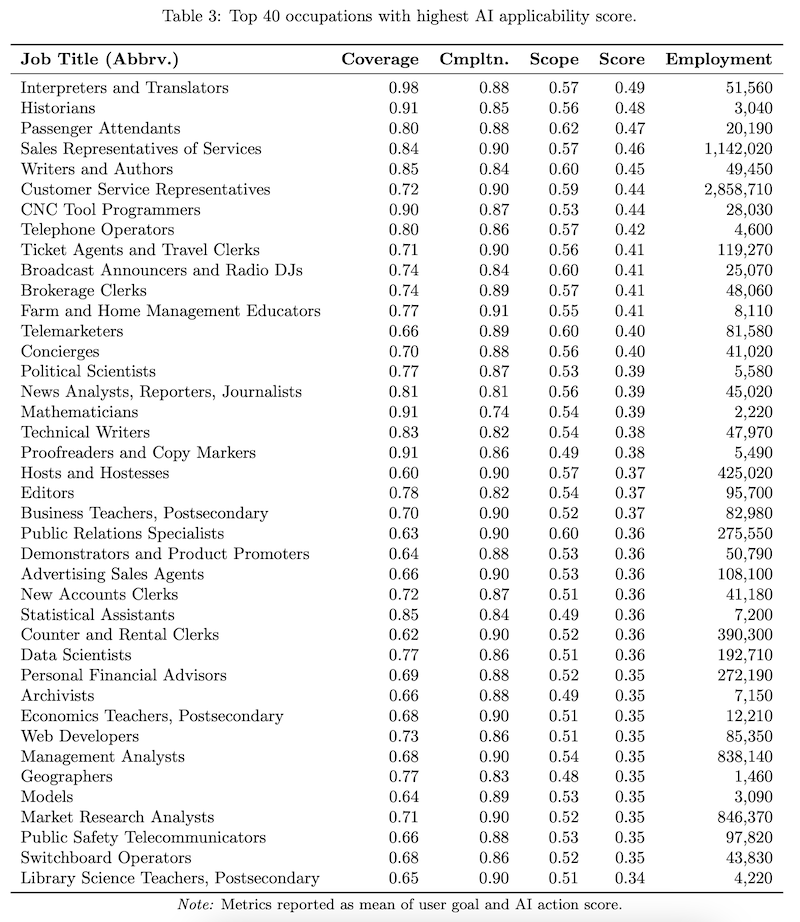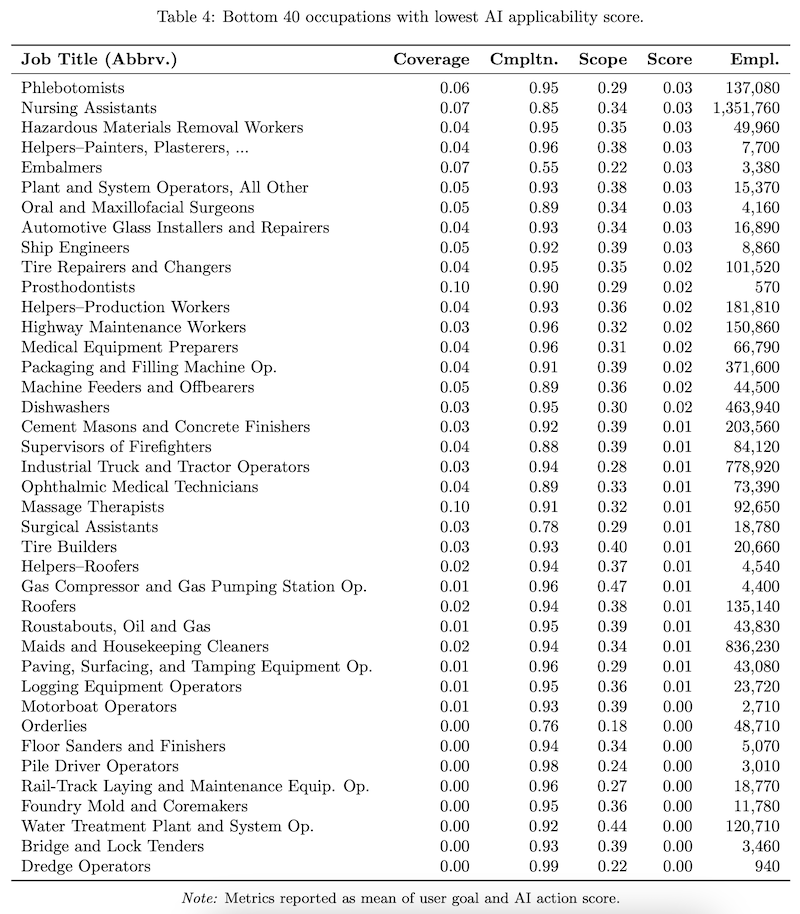So, Microsoft just dropped a 100-page research grenade on the future of jobs.
They analysed over 200,000 real-world AI use cases (not theory, not hype—actual usage data) to find out who should be nervous… and who can breathe easy.
And good news: if you’re a dentist, facial aesthetics pro, or injectables practitioner—you’re in the AI “low risk” club.
Why? Because what we do still requires:
- Human dexterity (AI can’t inject a face or drill a tooth… yet).
- Emotional intelligence (AI won’t calm an anxious patient or convince Karen not to overfill her lips).
- Visual-spatial judgement (no algorithm’s mastering “millimetre-perfect temple filler” in real-time).
The Microsoft study ranks jobs by how exposed they are to large language model (LLM) tools like GPT-4. Think: can AI perform a significant portion of this job already?
Facial aesthetics scored low. Dentistry? Low. Nurses? Low. Meanwhile…
High Risk? Software devs, accountants, telemarketers, admin roles, copywriters, paralegals, financial advisors—jobs where words, spreadsheets, and rules dominate.
The scariest bit? These aren’t blue-collar jobs. These are £60K+ “safe careers”. Or so we thought.
I was chatting with the kids the other day about uni degrees and careers.
What do you study in a world where AI can write better than your English teacher, code cleaner than your tutor, and argue harder than your debate coach?
Because here’s the truth: it’s not just about what you like anymore—it’s about what AI can’t easily replace.
You need to pick careers that are:
- Tactile – things you physically do (like aesthetics or surgery).
- Relational – things requiring empathy, persuasion, trust.
- Creative & strategic – not just following rules, but breaking them wisely.
So yeah, your daughter’s plan to be a Brain Surgeon? Smart.
Your son’s ambition to be a lawyer? Maybe… but tell him to learn marketing and AI prompt engineering on the side.
Here’s a wild thought…
If you’re guiding your kids, nieces, nephews—or even your own second act—ask:
“Can AI do this job faster, cheaper, and more accurately than me?”
If the answer’s yes, rethink it.
If the answer’s no, lean the hell in.
As for us in aesthetics? The robots aren’t injecting cheeks or handling nervous Botox virgins any time soon. But make no mistake… they are coming for the backend. Admin, bookings, marketing, patient follow-ups, analytics—you better be automating those parts of your clinic before your competitors do.
We’re safe from full AI take-over… for now.
But the real question is:
👉 What are you doing to stay irreplaceable when the robots do get better hands?
Sources:
- Bommasani et al. (2025). Will AI Disrupt Your Job? A Grounded Assessment of Occupations. arXiv:2507.07935
- Frey & Osborne (2017). The Future of Employment: How Susceptible Are Jobs to Computerisation? Technological Forecasting and Social Change.
- Brynjolfsson et al. (2023). Generative AI at Work. NBER Working Paper.



